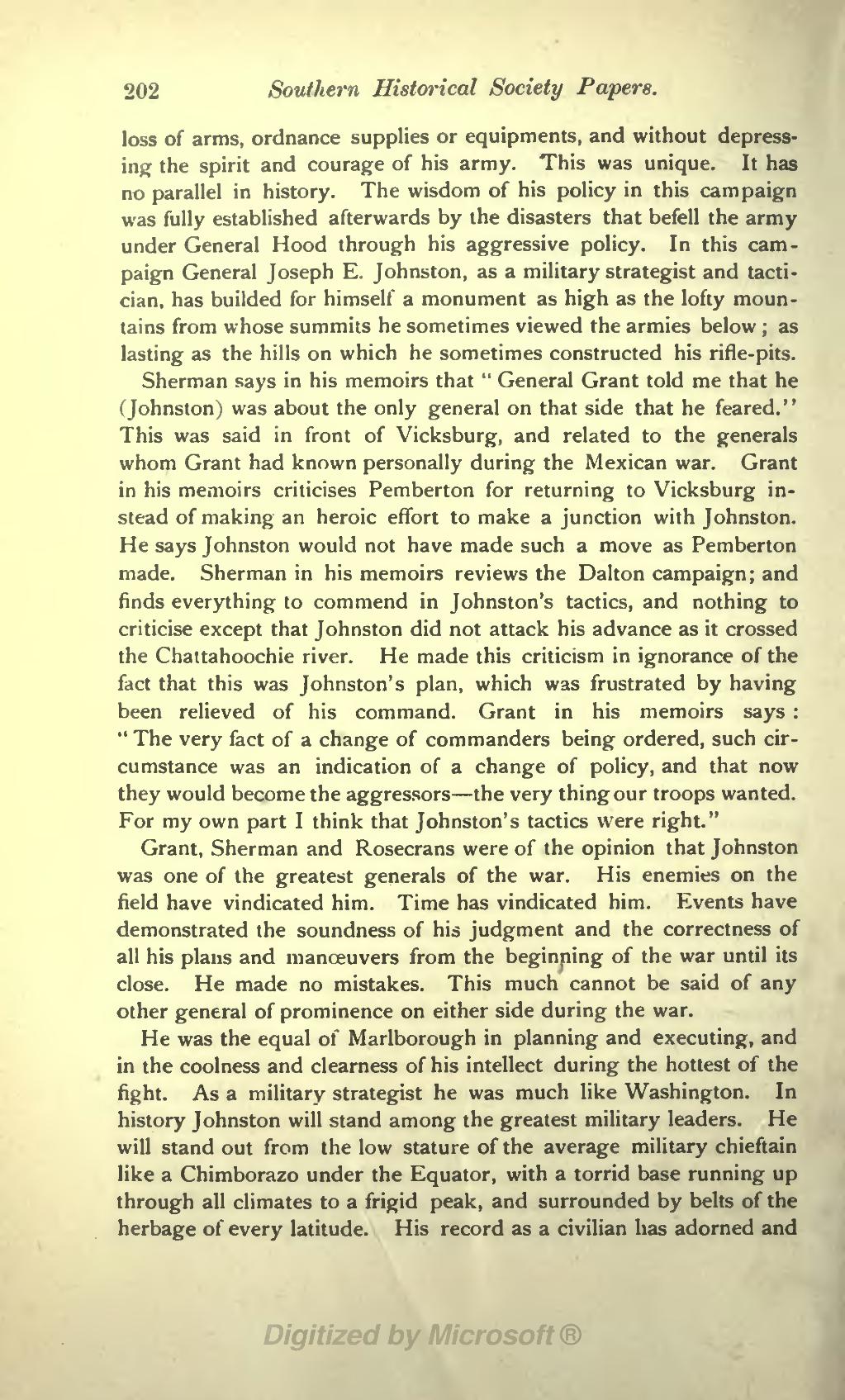202 Southern Historical Society Papers.
loss of arms, ordnance supplies or equipments, and without depress- ing the spirit and courage of his army. This was unique. It has no parallel in history. The wisdom of his policy in this campaign was fully established afterwards by the disasters that befell the army under General Hood through his aggressive policy. In this cam- paign General Joseph E. Johnston, as a military strategist and tacti- cian, has builded for himself a monument as high as the lofty moun- tains from whose summits he sometimes viewed the armies below ; as lasting as the hills on which he sometimes constructed his rifle-pits.
Sherman says in his memoirs that " General Grant told me that he (Johnston) was about the only general on that side that he feared." This was said in front of Vicksburg, and related to the generals whom Grant had known personally during the Mexican war. Grant in his memoirs criticises Pemberton for returning to Vicksburg in- stead of making an heroic effort to make a junction with Johnston. He says Johnston would not have made such a move as Pemberton made. Sherman in his memoirs reviews the Dalton campaign; and finds everything to commend in Johnston's tactics, and nothing to criticise except that Johnston did not attack his advance as it crossed the Chattahoochie river. He made this criticism in ignorance of the fact that this was Johnston's plan, which was frustrated by having been relieved of his command. Grant in his memoirs says : " The very fact of a change of commanders being ordered, such cir- cumstance was an indication of a change of policy, and that now they would become the aggressors the very thing our troops wanted. For my own part I think that Johnston's tactics were right."
Grant, Sherman and Rosecrans were of the opinion that Johnston was one of the greatest generals of the war. His enemies on the field have vindicated him. Time has vindicated him. Events have demonstrated the soundness of his judgment and the correctness of all his plans and manceuvers from the beginning of the war until its close. He made no mistakes. This much cannot be said of any other general of prominence on either side during the war.
He was the equal of Marlborough in planning and executing, and in the coolness and clearness of his intellect during the hottest of the fight. As a military strategist he was much like Washington. In history Johnston will stand among the greatest military leaders. He will stand out from the low stature of the average military chieftain like a Chimborazo under the Equator, with a torrid base running up through all climates to a frigid peak, and surrounded by belts of the herbage of every latitude. His record as a civilian has adorned and
